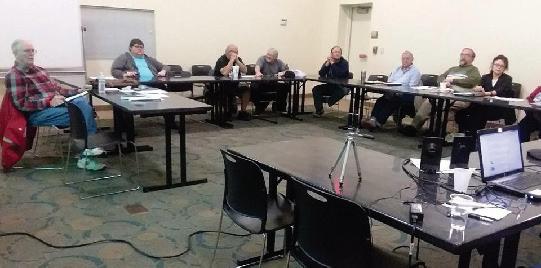TALKING POINTS
A GREAT HISTORY David Butcher Preserves Legacy of Appalachian Diversity in Tabler Town
I
STORY BY DESTINIEE JARAM | PHOTOS BY BRADLEIGH AEH
nside a small building in the middle of rural Ohio— disguised as an earth-toned, metal pole barn —is an overflowing archive of David Butcher’s ancestors: the founders of Tabler Town. David calls the exhibit at his home, “People of Color.” His grandmother, Elise, inspired David to begin his collection of artifacts as a young boy. Once, in middle school, he divulged to her that he found Black history depressing—that all he ever heard was his people were slaves. In response, Elise gave David a photo of his great-great-grandfather, a Civil War veteran. “I said, ‘wow’.” David laughs at the memory. “They sure didn’t tell me about this in school!” Some 40 years later, David is
devoted to preserving his ancestry and the history of Tabler Town, a Black-founded town, circa 1830. Michael Tabler, enslaver and paternal genesis of the Tabler family, originally lived in what was Virginia (now West Virgina) where he owned his wife, Hannah, and six children. When Tabler realized his mixed-race children would have a hard time claiming their inheritance, he moved the family to Ohio. He bought each of them their freedom, emancipated them, and gave each their own plot of farmland two miles away from Stewart. He freed his children and lived with them for 13 years his death in 1843. Today, maps call the village Kilvert, but locals still call it Tabler Town. “If we don’t tell the story, it will
be lost,” David says. “My goal is to try to preserve [our culture]. Whether it’s passing it on by telling the younger generations, or with a photo or an artifact; the goal is to try to keep it alive as long as we can.”
WAYS OF BEING
Zakes Mda, South African novelist, poet and playwright, became intrigued by Kilvert while he was an English professor at Ohio University (Athens). His award-winning novel, “Cion,” set in rural Ohio, concerns the descendants of white, Black and Native Americans who met and had children during the time of the Underground Railroad. “I fell in love with their heritage there, of which, they are very proud,” Mda says. “It was important to tell that story. It was the heritage and the fact they identified very strongly with their history.” This story of Black success in the 1800s reshapes the history of American heritage and Blackness. Tabler Town is an account of Black enterprise, generational assets and the resourceful spirit of Appalachian culture. “Black is not just one Black experience; there are many different ways of being Black, and many traditions even within these Black cultures,” Mda says. LEFT: Elias Butcher, David Butcher’s great uncle, served in World War I.
24 | WINTER/SPRING 2021















